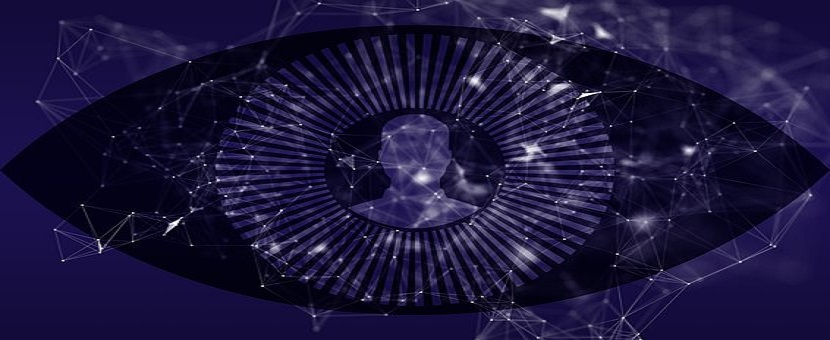Background.
The filth in the Nigerian criminal justice system has been a matter of concern for many and for too long. Aside the slow judicial system that is capable of making an accused person see out potential term of imprisonment while in custody, the whole journey – beginning from arrest by the police, detention in police cell and bail, arraignment, detention in prison and possible court bail – is purely a horrifying encounter. The horror is an affront to the constitutionally guaranteed fundamental right to dignity of the human person.
Given that certain issues may never be fully understood until one gains some practical experience and obtain a first-hand knowledge, an Investigative Journalist, ‘Fisayo Soyombo, set himself up for arrest and detention by the police, arraigned in court and eventually remanded in prison. In all, he spent about two weeks in detention — five days in a police cell and eight days in Ikoyi Prison. To this end, Soyombo adopted the pseudonym, Ojo Olajumoke.
Mr. Soyombo had a date with death, toured the gates of hell and had a successful bargain with life to live again. He went undercover to uncover the rot in our criminal justice system existing for tens of years, and he succeeded! His findings which exposed high level bribery and corruption, sodomy and drug abuse in prison, untold torture, etc, were adequately reported and published in three parts in the Cable*. The investigation was said to have been published with collaborative support from Cable Newspaper Journalism Foundation and the International Centre for Investigative Reporting (ICIR).
Recent report** has it that the authorities plan to arrest Soyombo for his undercover job. Consequently, the brave Journalist had no option but to go into hiding***. Afterall, it is only a tree that hears it will be cut down but remains still.
Is undercover journalism legal and ethical?
This question has become a subject of debate globally. Undercover journalism is a type of journalism where a reporter (like Soyombo) hides his or her identity to enable the reporter penetrate a system for the purpose of obtaining valuable information and revealing the truth about a situation or claim. It is similar to the activities of undercover police officers.
After a review of the arguments for and against undercover journalism, the Society of Professional Journalists’ Code of Ethics concluded that:
“Journalists should avoid undercover or other surreptitious methods of gathering information unless traditional, open methods will not yield information vital to the public. Undercover journalism should be used scarcely and if it is used, then it should be done if there are no other options to get the information. It also should be accompanied by useful, interesting, and relevant information for the public.”
According to the Columbia Journalism Review****,
“Overreliance on sting operations and subterfuge can weaken the public’s trust in the media and compromise journalists’ claim to be truthtellers. Undercover reporting can be a powerful tool, but it’s one to be used cautiously: against only the most important targets, and even then only when accompanied by solid traditional reporting.”
Traditional reporting generally entails maintaining objectivity, neutrality and the overall ethics of the profession. The Nigeria Police Force and the Nigerian Correctional Service are undoubtedly important targets and the information made available by Mr. Soyombo is not only useful and interesting, but completely relevant especially in this current administration whose mantra is fight against corruption.
It is understood that one of the core values of journalism is truth. Thus, employing a means founded on lies is capable of undermining public confidence. Kathy English once asked – how can lying to get a story be reconciled with the core value of truth? To this, she beautifully returned:
“Like so many ethical issues in journalism, this is not a black and white issue. Journalist’s first obligation is to seek truth and report it. But there are some circumstances when truth can only be discovered by means of deception. In such cases, the overriding value is the public interest.”
Another compelling view is the one given by Stefanie Chernow***** thus:
“Whenever subterfuge is used, journalists and media, like law-enforcement officials, have a responsibility to disclose how and why they used it and to justify their actions. In the end it is the audience that must decide whether the action was appropriate, but in order to do that, they have to be informed that it has happened in the first place.”
Mr. Soyombo’s action is clearly justified and this cannot by any means come under any reasonable criticism. Throughout the interesting report, the Undercover Journalist was driven by the determination to convince the public that his conduct was justified. Like a lamb for sacrifice, he bore all the pains when he was led down the aisle of grave inhuman and degrading treatment.
Section 29 of the Nigerian Correctional Service Act
Section 29(1)(c) states that a person commits an offence if he:
“Procures or facilitates the procurement of communication devices for an inmate or makes conversation or aids the making of conversation through a mobile phone or other devices to an inmate other than as provided in the Correctional Standing Orders and other related correctional policies.”
A superficial application of the above quoted subsection suggests that Mr. Soyombo might be prone to criminal liability for the use of communication and other related devices while in prison custody. However, we must not lose sight of the spirit of any law. The law in question, particularly Section 29 of the Act, seeks to punish acts detrimental to the security of Custodial Centres (prisons) and to forestall other criminal intentions. The conduct of Mr. Soyombo does not fall under such category. In fact, he was mindful in his report not to reveal any information that may compromise the security of the prisons.
Furthermore, by way of an analogy, the law guiding the production and use of evidence in court holds that it is absolutely irrelevant how evidence was procured. So long as that piece of evidence is relevant to the case, it would be admitted by the court. If a crime was committed in the process, it is a different matter altogether which cannot affect admissibility of the evidence so obtained. Therefore, if a journalist has an obligation to seek truth and report it, we would gladly accept the truth reported, especially in the public interest even if it means by subterfuge.
It is important to mention that it would be preposterous for a journalist to commit a known crime in the name of undercover reporting. For instance, if Mr. Soyombo tried to assault or kill any person that stands in his way during the secret investigation, he may not be excused on the basis that he is carrying out undercover reporting. All that happened thus far was that the Journalist had to tell a lie about his identity to enable him settle in like any other citizen and obtain raw facts about what truly obtains in the rotten system. Thus, considering the conduct of Mr. Soyombo, one would ask, of what difference does it really make that he is not whom he claims to be? Or that the transaction and incident leading to his arrest and detention did not really take place?
On the flip side, it is arguable if Mr. Soyombo has a right of action against the police officers and prison officials who allegedly assaulted him, particularly, Mr. Sunkanmi Ijadunola. It will not be surprising if this is far from the contemplation of Mr. Soyombo who was obviously prepared to sacrifice his liberty and even life for the sake of the truth.
Government must rise up
It is doubtful if the risk taken by Mr. Soyombo was worth it, especially in a country where the outcome of his revelations are easily predictable – Some of the police officers and prison officials identified in the damning report, including others to be later implicated, may be fired and prosecuted and some staff shake off would be witnessed. Tension would rise but will die down like the sound of a thunder. In no distant time, “business” would resume as usual with more sophistication. Nigerian criminal justice system is truly in a sorry state. The change in nomenclature from Nigeria Prisons Service to Nigerian Correctional Service would be absolutely meaningless if the urgent reforms are not followed through aggressively. Activities of organisations like Hope Behind Bars Africa should be highly encouraged.
* Cable Report Part I. Cable Report Part II. Cable Report Part III.
**Arrest Plan.
****Colombia Journalism Review.
***** Stefanie Chernow.














